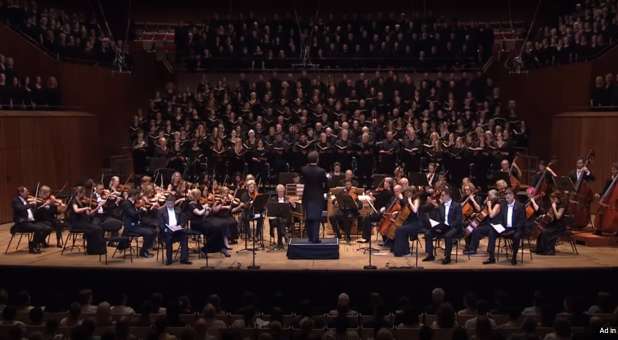Perfect for 2020: Handel’s ‘Messiah’ Transcends Cultural, Spiritual Divides
For many, Christmas wouldn’t be complete without witnessing or taking part in a performance of Handel’s Messiah. From the Virginia Symphony in the United States to the heart of the Holy Land, Jerusalem, the show is felt across the globe.
German-born George Frideric Handel moved to London in his late 30s. Handel considered himself an opera composer, but public interest was waning in England, and by 1741 a discouraged Handel wondered if retirement was near.
“Some people do think at this point, it was kind of like a career crisis … and it’s quite possible that he was thinking of returning to Germany,” Martin Wyatt, deputy director of Handel House Museum in London, told CBN News.
That’s when Charles Jennens handed him the words, or libretto, of Messiah. Jennens, a literary scholar, carefully selected Old and New Testament Scriptures documenting prophecies about the Messiah, Jesus’ birth, death on the cross and resurrection.
“The Christian message is in part also a response to the kind of growing interest in what is known as deism,” Wyatt explained.
Since the deists did not believe in the divinity of Christ, Jennens sought to counter that thinking.
“For Jennens, I think Messiah was a very personal passion, a very personal mission, and Jennens was a deeply religious man, a very committed Christian,” Wyatt said.
Read the rest of the beautiful story about the impact of Handel’s work from our content partners at CBN News.
Reprinted with permission from CBN.com. Copyright The Christian Broadcasting Network, Inc. All rights reserved.














































